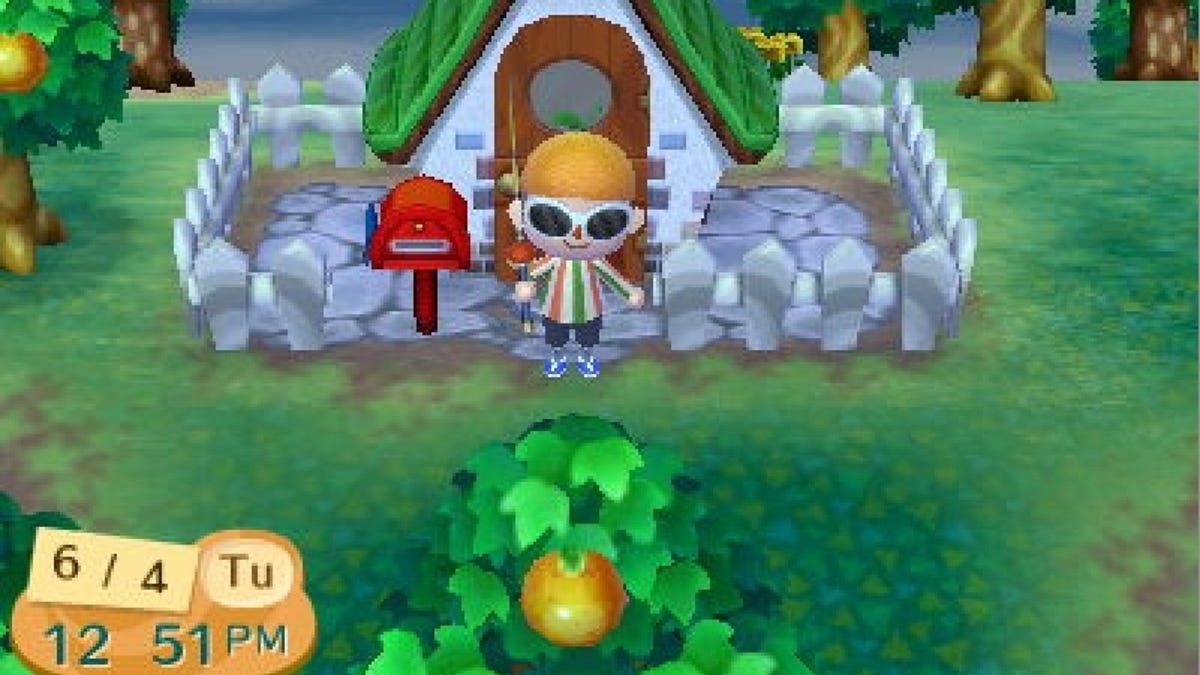Animal Crossing New Leaf: Nintendo's stealth mobile game
If Nintendo were ever to make a mobile phone or tablet game, Animal Crossing is the place to start. The 3DS just got its first massively addicting social game.

In this age of cheap, ubiquitous mobile phone and tablet games, you can't help but wonder what Nintendo would make if the company were ever to enter the space. That future seems unlikely considering Nintendo's investment in Wii U and 3DS hardware, but that doesn't mean there isn't software that could be brilliant in the mobile space. In fact, there's a fantastic mobile game Nintendo has right now -- it's just that it lives on the Nintendo 3DS.
Animal Crossing: New Leaf is the latest in a franchise extending back to 2002 on the GameCube. It was an odd game to explain back then; in fact, not much happens. You live in a small town, you collect fruit, you go fishing, you pay off loans on a home, you talk to animals that live in town and send them letters. It almost sounded like an MMO, but it wasn't online. I was hooked on it, and so were many game designer friends I knew.
Years later, the Nintendo DS version hooked my wife, who generally stays away from games (Plants vs Zombies and Ticket to Ride being the exceptions). She still plays it. And the 3DS version emerges with the core of the game largely unchanged: you still live in a small, cute town, building a little home, collecting money and buying furniture, going fishing and digging for treasures and fossils, and living a generally relaxed little life. Only, in the age of mobile games, the idea doesn't seem so foreign anymore. In fact, it sounds like a lot of casual games.
Farmville, and tons of freemium games after it, have communities that trade collectible goods and rare items. Animal Crossing, however, isn't freemium. It's a $39 game, but with no pay-per-item extras. It's all included, but you have to discover it, and pay your way out of house debt, and find ways to -- in this latest iteration -- become a mayor of your town and improve the atmosphere for your fellow residents. You might water plants one day, or plant fruit trees the next, or just find a random turnip-seller and see if you can make an investment that will pay off.
Animal Crossing is a persistent experience: days pass according to the real calendar, with surprise holidays and events. When it's night in the real world, it's night in your town. Stores open and close. Townsfolk go to sleep.
There's only so much you can do in a single session. This game is meant to be revisited regularly, in bits and pieces, "pottering around," as my wife would put it. You can visit the towns of friends and trade items, but only if you have a direct connection. Unlike games like LittleBigPlanet (a game that feels influenced by Animal Crossing), you can't browse public worlds freely. The decision to share your town with a friend is a small, discreet action. It's like inviting a friend over for dinner.
A game like this is all too easy to imagine on a smartphone or tablet, a place where online connections are easy and hopping in and out of a game is a snap. If Nintendo were to dip its toes into mobile gaming, Animal Crossing would be the slam-dunk franchise to kick it off. Like an Everlasting Gobstopper, Animal Crossing is a game that lasts forever. You can keep exploring and building, tinkering and pottering, long after you collect all items and pay off all debts and expand your home as far as it'll be expanded. It's a living world. And it's perfectly kid-friendly: in fact, it encourages manners and etiquette. I can't even remember another game that does that.
You just have to relinquish your concepts of quick-reward gaming. The game's slow pace and gentle feel, its nurturing tone, accumulate rather than press. You craft your work gently, like slow-motion Minecraft. Animal Crossing is like therapy. It's pulled me in slowly, once again. If Nintendo can achieve that, then what else is possible? Maybe this is the sort of game Nintendo needs to make more of. Maybe this is the key to Nintendo's direction in an age of increased competition and more advanced hardware. By doing something simple, heartfelt, and surprisingly against the grain of most console games, it succeeds.
This is the Nintendo I've been looking for.
For more on Animal Crossing, including a full review, be sure to check out GameSpot's coverage.

